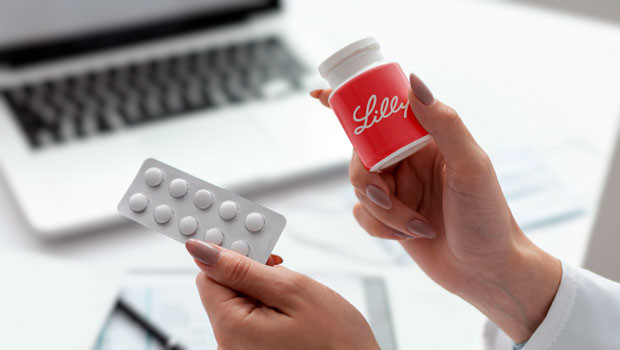Eli Lilly’s Pill for Weight Loss: Miracle or Marketing Hype?

The weight loss industry has always thrived on bold promises, breakthrough products, and the eternal hope of a “miracle solution.” In recent years, however, pharmaceutical giants have entered the spotlight with groundbreaking weight-loss drugs that go far beyond diet teas or trendy supplements. One company at the forefront of this revolution is Eli Lilly, a household name in pharmaceuticals, which has introduced a weight loss pill that is being hailed by some as a game-changer—and by others as a clever piece of marketing.
So, is Eli Lilly’s new pill truly the miracle it’s claimed to be, or is it just another hype-driven product designed to capture a booming market? Let’s dive deep into the science, the controversies, and the consumer realities to separate fact from fiction.
The Rise of Pharmaceutical Weight Loss Solutions
For decades, weight loss was considered a personal journey shaped by diet, exercise, and discipline. But the explosion of obesity worldwide—classified by the World Health Organization (WHO) as a global epidemic—has pushed science to search for medical interventions.
The result? A new generation of pharmaceutical weight loss treatments that target hormones, metabolism, and appetite regulation. Drugs like semaglutide (branded as Wegovy and Ozempic) have already transformed the market. But with Eli Lilly’s pill entering the stage, the game is changing yet again.
Unlike injectable drugs, this pill format makes weight management more accessible to people hesitant about needles, which could open up a massive consumer base.
What Exactly Is Eli Lilly’s Weight Loss Pill?
Eli Lilly’s much-talked-about pill is based on the company’s GLP-1 receptor agonist technology, similar to what powers their injectable blockbuster, Mounjaro (tirzepatide). This class of drugs works by:
- Mimicking natural hormones that regulate blood sugar and appetite.
- Slowing digestion, making you feel fuller for longer.
- Suppressing hunger signals in the brain.
Early studies suggest the pill form may deliver comparable results to injectables, offering patients convenience while maintaining efficacy.
According to clinical trial results, participants taking the pill reported:
- Significant weight loss (ranging from 10% to 20% of body weight).
- Improved blood sugar control in those with type 2 diabetes.
- Better adherence due to the easy daily pill format.
But as with every breakthrough, there’s a flip side worth exploring.
Why This Pill Is Being Called a “Miracle”
Accessibility and Convenience
- Pills are easier to take than injections. No refrigeration, no needles—just a daily routine.
Proven Weight Loss Results
- Clinical trials show substantial reductions in body weight compared to placebo groups.
- For many patients, results are more dramatic than anything achievable with diet and exercise alone.
Dual Benefits
- Besides weight reduction, the pill also improves blood sugar control, lowering risks for type 2 diabetes patients.
Massive Market Potential
- The global demand for effective, doctor-backed weight management tools is skyrocketing. Eli Lilly’s pill has the potential to become a household name, similar to Prozac or Lipitor in past decades.
The Marketing Hype: What Critics Are Saying
Despite its promise, not everyone is convinced. Critics warn that Eli Lilly’s weight loss pill might be more about profit than patients. Here’s why:
High Price Tag
- Early indications suggest the pill could cost hundreds of dollars per month. For many, especially those without insurance coverage, this is unsustainable.
Side Effects
- Nausea, diarrhea, constipation, and vomiting are among the most commonly reported issues.
- Some patients may also experience more serious risks, such as gallbladder problems or pancreatitis.
Short-Term Solution?
- Weight often returns when patients stop taking the medication, raising concerns about long-term dependency.
Aggressive Marketing
- Like with many pharmaceuticals, the glossy advertising campaigns often emphasize success stories while downplaying side effects.
Ethical Debate
- Some experts argue that promoting pills as a “quick fix” could overshadow the importance of lifestyle changes like diet and exercise.
Consumer Experiences: Early Reactions
As with most new medications, real-world stories are beginning to emerge:
- Some users report life-changing weight loss, regaining confidence, and dramatically improving their health.
- Others complain of persistent nausea or quitting due to intolerable side effects.
- A recurring theme is the fear of regaining weight once the pill is discontinued.
The truth seems to lie somewhere in between: the pill can be effective, but it is not a magic bullet.
Comparing Eli Lilly’s Pill to Competitors
Eli Lilly isn’t the only player in this booming industry. Novo Nordisk’s Wegovy and Ozempic currently dominate the market, but Lilly’s pill offers a needle-free alternative that could give it a competitive edge.
- Ozempic/Wegovy (Semaglutide): Injectable, widely proven, but in short supply.
- Mounjaro (Tirzepatide): Another injectable, shown to have even greater efficacy.
- Eli Lilly’s Pill (Oral GLP-1): Same mechanisms, but with the convenience of a pill.
In this race, convenience may be the deciding factor.
Is It Safe? Understanding the Risks
No discussion is complete without acknowledging potential risks:
- Gastrointestinal distress: The most reported side effect.
- Potential nutrient deficiencies: Slower digestion may reduce absorption.
- Psychological reliance: Patients may see the pill as the only solution, ignoring lifestyle habits.
- Unknown long-term effects: While short-term trials are promising, we lack decades of data.
Doctors caution that these medications are not for everyone, especially those with a history of pancreatitis or certain cancers.
The Bigger Picture: The Business of Weight Loss
Eli Lilly’s pill isn’t just a medical innovation—it’s a business goldmine. The global weight loss drug market is expected to grow into the hundreds of billions within the next decade. By positioning itself as the leader in oral solutions, Eli Lilly is strategically targeting a vast consumer base.
But with big money comes big skepticism. Many ask: Are these companies truly solving the obesity crisis, or just capitalizing on it?
Safer Alternatives to Consider
If you’re not ready to try a pharmaceutical option, here are evidence-based strategies that continue to work:
- Balanced Nutrition: Prioritizing whole foods, protein, and fiber.
- Regular Physical Activity: Resistance training and cardio for sustainable weight control.
- Behavioral Therapy: Addressing emotional eating and mindset.
- Non-Pharmaceutical Interventions: Devices and programs designed for long-term lifestyle support.
These methods may not deliver the dramatic results of a pill, but they offer sustainable health benefits without the risks.
Final Verdict: Miracle or Marketing Hype?
Eli Lilly’s pill for weight loss is undeniably impressive in its science and early results. For many people struggling with obesity, it offers real hope and life-changing benefits.
But let’s be clear: this is not a miracle pill. It comes with side effects, high costs, and the risk of dependency. The marketing machine will likely amplify its benefits while minimizing drawbacks, but informed consumers must approach with caution.
So, is it a miracle or marketing hype? The answer is both. It is a powerful medical tool, but not a cure-all. The best outcomes will likely come when it’s paired with long-term lifestyle changes rather than seen as a stand-alone solution.




